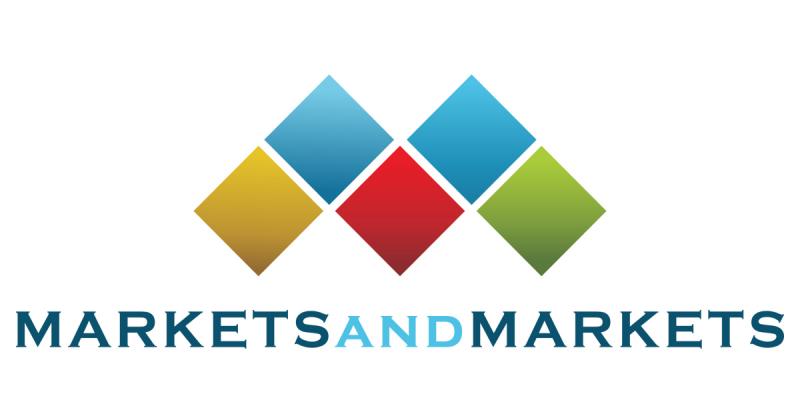According to the new market research report "European Smart Home Market by Product (Lighting Control, Security & Access Control, HVAC, Entertainment & Other Control, Smart Speaker, Home Healthcare, Smart Kitchen, Home Appliances, and Smart Furniture), Software & Services - Forecast to 2024", the European smart home market is expected to grow from USD 22.8 billion in 2018 to USD 44.0 billion by 2024 at a CAGR of 11.58%. The growth of the European smart home market is driven by factors such as growing number of internet users and increasing adoption of smart devices; increasing importance of home monitoring in remote locations; rising need for energy-saving and low carbon emission-oriented solutions; cost reduction measures enabled by smart homes; large number of manufacturers expanding their smart home product portfolios; and growing concern about safety, security, and convenience among people.
• Download Informaitonal PDF Brochure :-
https://www.marketsandmarkets.com/pdfdownloadNew.asp?id=1290
Browse 70 market data Tables and 53 Figures spread through 209 Pages and in-depth TOC on "European Smart Home Market"
The European smart home market is currently dominated by Johnson Controls International (Ireland), Siemens AG (Germany), Schneider Electric (France), United Technologies Corporation (US), and Honeywell International, Inc. (US). A few of the major strategies adopted by these players to compete in the European smart home market include product launches and development, partnerships, and mergers and acquisitions.
Other players operating in the European smart home market are Amazon, Inc. (US), Apple Inc. (US), Google (US), ADT (US), Robert Bosch Gmbh (Germany), ASSA ABLOY (Sweden), ABB Ltd. (Switzerland), Ingersoll-Rand PLC (Ireland), ABB (Switzerland), Legrand S.A. (France), GE (US), Comcast Corp. (US), among others. These players have adopted product developments and launches, mergers and acquisitions, and partnerships and collaborations to grow in the European smart home market.
Restraint: Issues related to breach in security and privacy
A European smart home market helps in gathering information about its inhabitants regarding their energy usage and bills, purchases, movements, and music preferences, among others, to enable its systems to be custom-built to best support the inhabitants’ lifestyle. Devices in a smart home may be vulnerable to common hacking tools. As the data related to personal information, physical safety, medical care, and homes are stored virtually onto cloud, chances are high for them to be misused by hackers. A hacked monitor could provide access to other personal data and information, which, in turn, could be used to victimize a user or a homeowner. The smart home industry is confronted with the challenge of assuring security and confidentiality of personal information to consumers. In case of the remote control of security services, it is imperative to maintain the confidentiality of the information stored; the control of a network’s security systems cannot be compromised. This is expected to restrain the European smart home market growth.
Opportunity: Favorable government regulations
A green building refers to a structure using processes that are environmentally responsible and resource-efficient throughout a building's lifecycle, from siting to design, construction, operation, maintenance, renovation, and demolition. Several key steps involved in designing sustainable buildings include specifying green building materials from local sources, reducing loads, optimizing systems, and generating on-site renewable energy.
The design of any green building involves balance between homebuilding and sustainable environment. As it reduces the consumption of energy and proliferation of environmental wastes, governments around the globe have been supporting the concept of green buildings through various initiatives; for instance, Europe has been at the forefront of the green building technology, fully backed by various government subsidiaries. Implementing smart home technologies is likely to help in achieving the objective of green buildings as they are energy-efficient and in saving electricity, water, and natural gas, thereby reducing the strain on natural resources. Energy efficiency, to achieve reduced carbon emissions and energy consumption, has become one of the major priorities for many countries. The governments in the UK, Germany, and France have always been promoting green environment, which has resulted in a large number of smart homes in Europe. Over the past few years, the governments of European countries have also been taking initiatives to adopt energy-efficient measures across the region. Regulations stated by the governments in this region favor home automation systems. Awareness regarding the adverse effects of global warming further drives the use of automated home energy management systems. Hence, such government initiatives are expected to boost the penetration rate of smart home technologies during the forecast period in European smart home market.
Challenges: Retrofitting existing homes
There exist 3 ways of adopting smart homes, namely, retrofitting existing homes, converting other properties tailored to buyers’ requirements, and purpose-built homes. Mostly, the latter two are employed to deploy smart home technologies because new construction or major restoration provide the ability to optimize high cost of extensive cabling and intelligent control infrastructure with respect to the physical characteristics of a building. This leads to two consequences. Owing to high installation cost, many construction firms do not install smart home technologies in all domestic buildings; only luxury domestic buildings are installed with smart home technologies.
About MarketsandMarkets™
MarketsandMarkets™ provides quantified B2B research on 30,000 high growth niche opportunities/threats which will impact 70% to 80% of worldwide companies’ revenues. Currently servicing 7500 customers worldwide including 80% of global Fortune 1000 companies as clients. Almost 75,000 top officers across eight industries worldwide approach MarketsandMarkets™ for their painpoints around revenues decisions.
Contact:
Mr. Shelly Singh
MarketsandMarkets™ INC.
630 Dundee Road
Suite 430
Northbrook, IL 60062
USA : 1-888-600-6441
newsletter@marketsandmarkets.com
